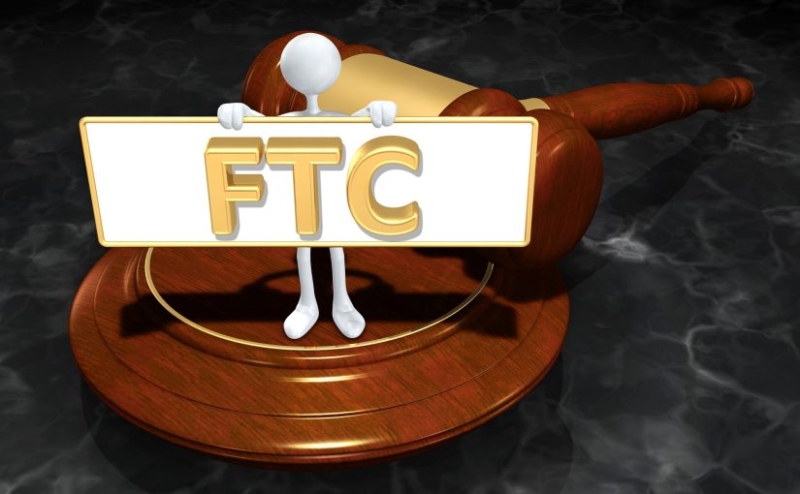
In today’s rapidly evolving digital economy, new artificial intelligence tools promise to transform every industry. Sometimes, those promises are overblown or outright deceptive. So, as the AI hype cycle continues, regulators are left with the unenviable role of determining their duties to shape the impact of these developing tools on businesses and the public. Although the EEOC, SEC, DOJ and several State Attorneys General are issuing warnings and increasingly investigating the risks of AI, this tension is on full display with the Federal Trade Commission’s recent enforcement actions announced as part of its “Operation AI Comply,” which marks the beginning of its “new law enforcement sweep” against companies that are relying on AI “as a way to supercharge deceptive or unfair conduct that harms consumers.”1
Although many of the initial targets of Operation AI Comply were accused of conduct that plausibly violated Section 5, the FTC’s charges against an AI writing assistant, Rytr, drew strong dissents from two of the FTC Commissioners who accused their fellow commissioners of effectively strangling AI innovation in the crib. There are several important takeaways from Operation AI Comply, particularly if the dissenting commissioners have correctly identified that the FTC is pushing the boundaries of its authority in pursuit of AI.
The FTC and its Role in AI Regulation.
The FTC plays a critical role in protecting consumers from unfair or deceptive practices, and it has long been warning developers about how their algorithms and AI tools might violate one of its broadest sources of statutory authority: Section 5 of the FTC Act.2
In many respects, the FTC’s September 25, 2024, announcement of its “Crackdown on Deceptive AI Claims and Schemes” should not have come as a surprise, as most of the enforcement actions related to overhyping AI.3 For example, the FTC’s Complaint and proposed settlement with DoNotPay – which made bold claims about being “the world’s first robot lawyer” and that it could “generate perfectly valid legal documents in no time,” replacing “the $200-billion-dollar legal industry with artificial intelligence”4– turned on relatively straightforward false or unsubstantiated performance claims in violation of Section 5 of the FTC Act.5 Similarly, the FTC’s charges against Ascend Ecom,6 Ecommerce Empire Builders,7 and FBA Machine8 all relate to allegations of e-commerce business opportunity schemes that generally engaged in AI-washing – i.e., a tactic of exaggerating or falsely representing that a product uses AI in an effort to make the product or company appear more cutting edge than it actually is.9 Each of these four cases was unanimously supported by the Commission, receiving 5-0 votes, and is consistent with other actions brought by the FTC to combat unfair, deceptive, or discriminatory impacts of AI.10
However, with a 3-2 split among its commissioners, the FTC’s complaint against Rytr is a different story.11 Historically, unanimous decisions were more typical; however, split decisions are becoming more common as the FTC pursues more aggressive enforcement actions and reflect a broader ideological conflict about the role of regulation and market intervention.
Rytr: Creative Assistant or Assistant to Fraud?
Rytr is a generative AI writing assistant that produces unlimited written content for subscribers for over 43 use cases.12 At the core of the FTC’s complaint against Rytr is the risk that one of its use cases – a “Testimonial & Review” feature – can be used to create customer reviews that may be false or misleading.13
Based on limited user input, users can generate “genuine-sounding, detailed reviews quickly and with little user effort,” which the FTC believes “would almost certainly be false for users who copy the generated content and publish it online.”14 The FTC gives one example where a user provided minimal inputs of “this product” and “dog shampoo” to generate a detailed paragraph boasting how the dog shampoo smelled great, reduced shedding, improved the shine of their dog’s coat, and recommended the product.15 Based on example inputs and outputs like this, the FTC concluded that Rytr’s services “causes or is likely to cause substantial harm to consumers” and “its likely only use is to facilitate subscribers posting fake reviews with which to deceive consumers.”16 As such, the FTC’s complaint argues that Rytr – by offering a tool that could be readily used to generate false reviews — provided the “means and instrumentalities for deception” and engaged in unfair acts or practices in violation of Section 5 of the FTC Act.17
In other words, the majority of the FTC Commissioners were concerned about an infinite potential for inaccurate or deceptive product reviews by Rytr’s subscribers and did not recognize countervailing reasons to allow this use of technology. Without admitting or denying the allegations in the Complaint, Rytr agreed to a proposed settlement with the FTC by which Rytr would stop offering the Testimonial & Review use case at issue in this case18 – a pragmatic solution to avoid litigation with the government.
Dissents from the FTC’s Direction.
Commissioners Melissa Holyoak and Andrew Ferguson submitted two dissenting statements, criticizing the complaint against Rytr as an aggressive expansion of the FTC’s authority under Section 5 and cautioned against its chilling effect on a nascent industry.19
Commissioner Ferguson framed the internal conflict well: “Treating as categorically illegal a generative AI tool merely because of the possibility that someone might use it for fraud is inconsistent with our precedents and common sense. And it threatens to turn honest innovators into lawbreakers and risks strangling a potentially revolutionary technology in its cradle.”20 The dissenting statements identified three broad objections to the Rytr complaint.
First, as a threshold matter, the complaint failed to identify any evidence of actual harmful or deceptive acts stemming from Rytr’s product – a clear requirement under Section 5 of the FTC Act.21 Both dissents criticized the complaint for effectively treating draft outputs from Rytr as the final reviews published by users; however, “the Commission does not allege a single example of a Rytr-generated review being used to deceive consumers in violation of Section 5 [.]22 Both dissents criticized the complaint for ignoring the obvious benefits of generative AI in this context. Namely, that “much of the promise of AI stems from its remarkable ability to provide such benefits to consumers using AI tools. . . . If Rytr’s tool helped users draft reviews about their experiences that they would not have posted without the benefit of a drafting aid, consumers seeing their reviews benefitted, too.”23
Second, the dissenters rejected the complaint as “a dramatic extension of means-and-instrumentalities liability,”24 particularly in a case “where there is no allegation that Rytr itself made misrepresentations.”25 The complaint focused on the fact that Rytr “has furnished its users and subscribers with the means to generate written content for consumer reviews that is false and deceptive[,]” thus providing “the means and instrumentalities for the commissions of deceptive acts and practices.”26 However, the dissenters note that the “critical element for primary liability is the existence of a representation, either by statement or omission, made by the defendant.”27 The theory advanced against Rytr could be “true of an almost unlimited number of products and services: pencils, paper, printers, computers, smartphones, word processors, . . . etc.”28 Accordingly, both dissenting commissioners rejected this expansion of means-and-instrumentalities liability because a “knowledge requirement avoids treating innocent and productive conduct as illegal merely because of the subsequent acts of independent third parties.”29
Finally, the dissenters offered several reasons why the FTC’s complaint was not in the public’s interest. Both dissenters expressed concerns that this case was too aggressive and would undermine innovation in the AI industry.30 Commissioner Ferguson went further to note that the complaint could violate important First Amendment interests, noting that the complaint “holds a company liable under Section 5 for a product that helps people speak, quite literally.”31 He criticized the theory behind the complaint; “[y]et because the technology in question is new and unfamiliar, I fear we are giving short shrift to common sense and to fundamental constitutional values.”32
Conclusion
It bears repeating that the FTC Commissioners unanimously approved almost every case listed in Operation AI Comply; “[w]hen people use generative AI technology to lie, cheat, and steal, the law should punish them no differently than if they use quill and parchment.”33 So, the FTC’s warnings about marketing AI systems for professional services, using AI to engage in misleading marketing, or overstating a product’s AI integration should be heeded, especially with the FTC’s statements that this is only the beginning of its enforcement activity.34 In prepared remarks, Chair Lina Khan has stated that the FTC is “making clear that there is no AI exemption from the laws on the books[,]35 so companies should take care to protect against whether their AI and other automated tools are being used for unfair or deceptive purposes or have biased or discriminatory impacts. Just because a technology is new does not mean that it can ignore existing laws – and we’ve seen similar sentiments and disputes in other areas of emerging technology enforcement, such as the SEC’s view that, with respect to U.S. securities laws, “[t]here’s no reason to treat the crypto market differently just because different technology is used.”36
However, the Rytr case could be an indicator that the majority intends to pursue a broader theory of liability under Section 5 of the FTC Act to include tools that merely could be misused – without proof of actual harm or intent. If that continues to be the case, developers should be vigilant in identifying how their products and platforms could be misused for fraudulent purposes, as well-intentioned developers may become the target of investigations or other inquiries by the FTC. The FTC is accepting public comments on the proposed consent agreement with Rytr through November 4, 2024,37 which could develop the FTC’s position further.
1) FTC Announces Crackdown on Deceptive AI Claims and Schemes, Press Release, Federal Trade Commission (Sept. 25, 2024), available at https://www.ftc.gov/news-events/news/press-releases/2024/09/ftc-announces-crackdown-deceptive-ai-claims-schemes.
2) See, e.g., Aiming for truth, fairness, and equity in your company’s use of AI, Elisa Johnson, Federal Trade Commission (April 19, 2021), available at https://www.ftc.gov/business-guidance/blog/2021/04/aiming-truth-fairness-equity-your-companys-use-ai.
3) Operation AI Comply: Detecting AI-infused frauds and deceptions, Alvaro Puig, Federal Trade Commission (Sept. 25, 2024), available at https://consumer.ftc.gov/consumer-alerts/2024/09/operation-ai-comply-detecting-ai-infused-frauds-and-deceptions.
4) See, e.g., id.
5) In re DoNotPay, Inc., FTC Matter No. 2323042, Complaint available at https://www.ftc.gov/system/files/ftc_gov/pdf/DoNotPayInc-Complaint.pdf.
6) FTC v. Ascend Capventures, Inc., et al., C.D. Ca. Case No. 2:24-CV-07660-SPG-JPR (Filed Sept. 9, 2024).
7) FTC v. Empire Holdings Group LLC, et al., E.D. Pa. Case No. 2:24-CV-04949 (Filed Sept. 18, 2024).
8) FTC v. TheFBAMachine Inc., et al., D. N.J. Case No. 2:24-CV-06635-JXN-LDW (Filed June 3, 2024).
9) See generally, FTC Announces Crackdown on Deceptive AI Claims and Schemes, supra.
10) The FTC aggregated several summaries for its recent cases related to AI and other automated tools, which can be found here: https://www.ftc.gov/business-guidance/blog/2024/09/operation-ai-comply-continuing-crackdown-overpromises-ai-related-lies#:~:text=These%20cases%20are,CRI%20Genetics.
11) See generally Cases and Proceedings: Rytr, FTC Matter No. 2323052 (last updated Sept. 25, 2024), available at https://www.ftc.gov/legal-library/browse/cases-proceedings/rytr.
12) See, e.g., In re Rytr LLC, FTC Matter No. 2323052, Complaint ¶ 2, available at https://www.ftc.gov/system/files/ftc_gov/pdf/2323052rytrcomplaint.pdf.
13) Id. ¶ 6.
14) Id. ¶¶ 6-8.
15) Id. ¶ 10.
16) Id. ¶ 14.
17) Id. ¶¶ 15-18.
18) See In re Rytr LLC, Agreement Containing Consent Order, available at https://www.ftc.gov/system/files/ftc_gov/pdf/2323052rytracco.pdf.
19) See, e.g., Dissenting Statement of Commissioner Melissa Holyoak, Joined by Commissioner Andrew N. Ferguson, In re Rytr LLC, FTC Matter No. 2323052 at p.1 (cautioning against settlements to “advance claims or obtain orders that a court is highly unlikely to credit or grant in litigation,” as it may encourage the use of “questionable or misguided theories or cases.”) [hereinafter, “Holyoak Dissent”].
20) Dissenting Statement of Commissioner Andrew N. Ferguson, Joined by Commissioner Melissa Holyoak, In re Rytr LLC, FTC Matter No. 2323052 at p.1 [hereinafter, “Ferguson Dissent”].
21) See 15 U.S.C. § 45(n) (prohibiting the FTC from declaring an act or practice unfair unless it “causes or is likely to cause substantial injury to consumers which is not reasonably avoidable by consumers themselves and not outweighed by countervailing benefits to consumers or to competition.”).
22) Ferguson Dissent at p.6; see also Holyoak Dissent at p.2.
23) Holyoak Dissent at p.3; see also Ferguson Dissent at p.7 (noting the challenges of writing a thoughtful review and that “a tool that produces a well-written first draft of a review based on some keyword inputs can make the task more accessible.”).
24) Ferguson Dissent at p.5.
25) Holyoak Dissent at p.4 (emphasis original).
26) Complaint ¶¶ 15-16.
27) Holyoak Dissent at p.4 (emphasis original) (cleaned up with citations omitted); see also Ferguson Dissent at pp.3-5 (discussing the circumstances in which means-and-instrumentalities liability arises).
28) Ferguson Dissent at p.5.
29) Ferguson Dissent at p.7; see also Holyoak Dissent at p.5 (“Section 5 does not categorically prohibit a product or service merely because someone might use it to deceive someone else.”).
30) Holyoak Dissent at p.5 (“Today’s misguided complaint and its erroneous application of Section 5 will likely undermine innovation in the AI space.”); Ferguson Dissent at p.10 (“But we should not bend the law to get at AI. And we certainly should not chill innovation by threatening to hold AI companies liable for whatever illegal use some clever fraudster might find for their technology.”).
31) Ferguson Dissent at p.10.
32) Id.
33) Id. at p.9 (citing Concurring and Dissenting Statement of Commissioner Andrew N. Ferguson, A Look Behind the Screens: Examining the Data Practices of Social Media and Video Streaming Services, at pp.10-11 (Sept. 19, 2024)).
34) Operation AI Comply: Detecting AI-infused frauds and deceptions, supra.
35) A few key principles: An excerpt from Chair Khan’s Remarks at the January Tech Summit on AI, FTC (Feb. 8, 2024), available at https://www.ftc.gov/policy/advocacy-research/tech-at-ftc/2024/02/few-key-principles-excerpt-chair-khans-remarks-january-tech-summit-ai.
36) Prepared Remarks of Gary Gensler on Crypto Markets at Penn Law Capital Markets Association Annual Conference, Chair Gary Gensler, SEC (April 4, 2022), available at https://www.sec.gov/newsroom/speeches-statements/gensler-remarks-crypto-markets-040422.
37) Rytr LLC; Analysis of Proposed Consent Order To Aid Public Comment, Federal Register, available at https://www.federalregister.gov/documents/2024/10/03/2024-22767/rytr-llc-analysis-of-proposed-consent-order-to-aid-public-comment.
Copyright ©2024 Nelson Mullins Riley & Scarborough LLP by: Jeffrey M. Kelly, Matthew G. Lindenbaum, Robert L. Lindholm, Nathaniel J. Pencook of Nelson Mullins For more news on FTC Action on Artificial Intelligence, visit the NLR Antitrust, Trade, & Regulation section.




